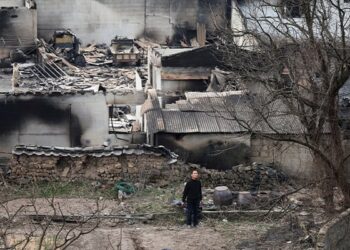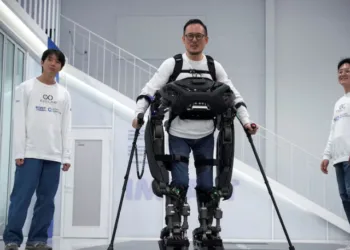- Acting President Han Duck-soo will serve until a new election is held.
- The court dismissed claims that martial law was enacted as a warning.
- Yoon is also facing a criminal trial on insurrection charges.
SEOUL: The Constitutional Court of South Korea voted on Friday to remove President Yoon Suk Yeol from office, validating parliament’s impeachment motion linked to his imposition of martial law last year—a decision that triggered the nation’s most significant political crisis in decades.
This ruling brings to a close several months of political instability that have complicated responses to the new U.S. administration under President Donald Trump while the fourth-largest economy in Asia grapples with slowing growth.
Following Yoon’s impeachment, the constitution mandates that a presidential election be held within 60 days.
In the meantime, Prime Minister Han Duck-soo will serve as acting president until the new leader is sworn in.
“The unanimous decision by the Constitutional Court eliminates a significant source of uncertainty,” stated Professor Leif-Eric Easley from Ewha University in Seoul. “And this clarity is timely as the forthcoming administration will need to address North Korea’s military threats, China’s diplomatic pressures, and the trade tariffs introduced by Trump.”
Acting Chief Justice Moon Hyung-bae indicated that Yoon failed in his presidential duties with the decree for martial law issued on December 3, asserting that he acted outside his constitutional authority, which posed “a serious challenge to democracy.”
“(Yoon) has profoundly betrayed the trust of the people, who are the sovereign entities of this democratic republic,” Moon pronounced, adding that the martial law proclamation incited chaos across every sector of society—economically, socially, and in terms of foreign relations.
Upon hearing the ruling, thousands gathered at a rally advocating for Yoon’s removal erupted in cheers, chanting “We won!”
In contrast, Yoon’s supporters gathered near his official residence expressed their anger, with one protestor reportedly being arrested for vandalizing a police bus, according to Yonhap news agency.
Despite the ruling, the South Korean won remained largely unaffected, trading about 1% higher against the dollar at 1,436.6 per dollar as of 0249 GMT. The KOSPI benchmark index dipped by 0.7%, consistent with expectations that the court would uphold the impeachment.
Rejected Claims
The court dismissed most of Yoon’s argument that his martial law declaration was meant to sound the alarm about the opposition party’s misuse of its parliamentary power, asserting that there were legitimate means to address such concerns.
Moon emphasized that the decree lacked both justification and proper procedure, stating that using military force against the parliament to disrupt its duties was a severe breach of Yoon’s constitutional obligation to protect the independence of the three governmental branches.
Kwon Young-se, the interim leader of Yoon’s ruling People Power Party, issued an apology to the public, stating that the party accepts the court’s decision with humility and commits to cooperating with the acting president to stabilize the nation.
Speaking after the ruling, Acting President Han Duck-soo pledged to take all necessary steps to guarantee a smooth and orderly presidential election process.
Finance Minister Choi Sang-mok is expected to hold an emergency meeting with the Bank of Korea governor and financial regulators.
The 64-year-old Yoon faces a separate criminal trial concerning insurrection charges related to his martial law declaration. He became the first sitting South Korean president to be arrested on January 15 but was released in March after a court annulled his arrest warrant.
The ongoing crisis was instigated by Yoon’s martial law declaration, which he claimed was essential to eradicate “anti-state” elements and counter the opposition Democratic Party’s alleged misuse of its parliamentary majority, which he argued was endangering the nation.
Yoon rescinded the decree six hours later after parliamentary personnel utilized barricades and fire extinguishers to fend off special operations soldiers arriving by helicopter who attempted to enter the building and broke windows. Yoon argued he never intended to fully implement emergency military control and attempted to minimize the incident’s fallout by stating that no one was harmed.





